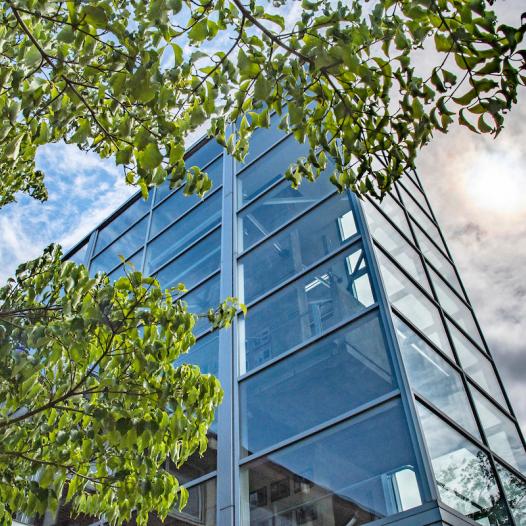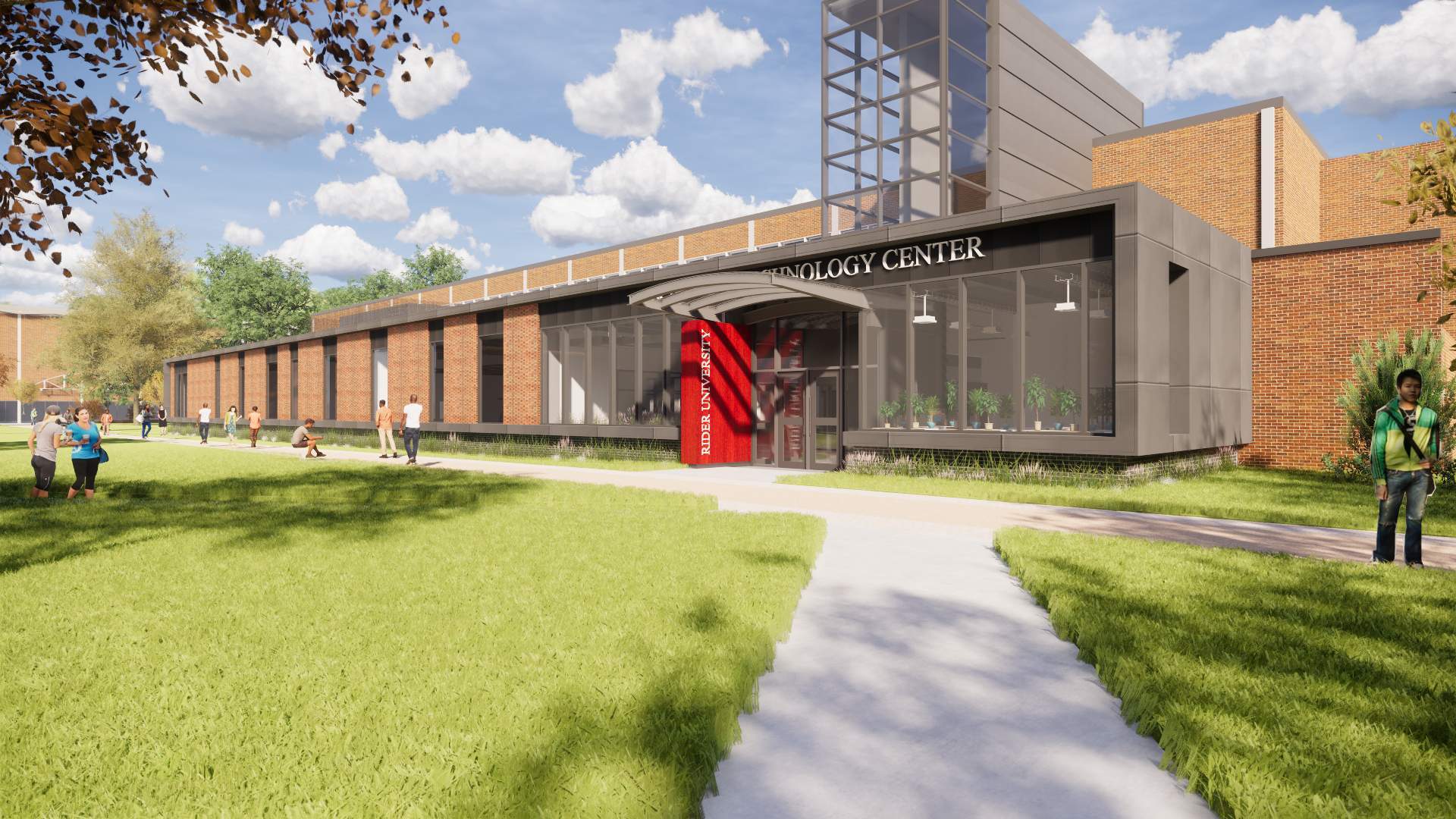Thursday, Oct 22, 2020
New addition to provide space for growing programs in computer science, cybersecurity and health sciences
by Diane Cornell
A $7 million expansion of Rider University's Science and Technology Center is expected to begin this fall.
The 9,500-square-foot addition will expand the size of the Science and Technology Center to more than 79,000 square feet of space, providing important upgrades to train the next generation of medical, healthcare and science professionals.
The project will create a new wing with modern labs for cybersecurity and anatomy and physiology. It will also bring state-of-the-art equipment, a new greenhouse and distinct areas meant to encourage collaboration, discussion and study. In addition, classroom space for cybersecurity, computer science and an evolving program in software engineering will be added.
Construction is scheduled to start in mid to late November and is anticipated to be completed by December 2021, says Vice President for Facilities and University Operations Michael Reca.
University Advancement is currently fundraising in support of the project and for an additional $3 million for new equipment and scholarships.
The original 30,000-square foot building has more than doubled in size since it was first constructed in 1961, with two previous additions having been completed in 1963 and 1994. Since 1994 the University has been adding onto and upgrading its science complex to meet the demands of a continuously evolving science education. Recent renovations include the creation of the DiDonato Family Lecture Hall on the first floor and many upgrades to lab spaces, common areas and faculty offices.

Today’s science is interdisciplinary, and practitioners need to be able to draw knowledge from diverse perspectives to solve problems.
This current project will allow Rider to continue to integrate its newer disciplines such as cybersecurity, computer science, and health and exercise sciences with traditional offerings in chemistry, biology, environmental science, mathematics and physics.
“Today’s science is interdisciplinary, and practitioners need to be able to draw knowledge from diverse perspectives to solve problems,” says Dr. Kelly Bidle, dean of the College of Liberal Arts and Sciences. “This approach keeps students from working in silos and helps them to understand critical connections between seemingly distinct fields of study. I am delighted that this new addition will allow us to continue to foster an inclusive and interdisciplinary community of future scientists.”
Those wishing to make a gift in support of the Science and Technology Center expansion can visit rider.edu/sciencebuilding. For more information on the project, please contact Senior Director of Development Pamela Mingle at 609-896-7725 or pamingle@rider.edu.

